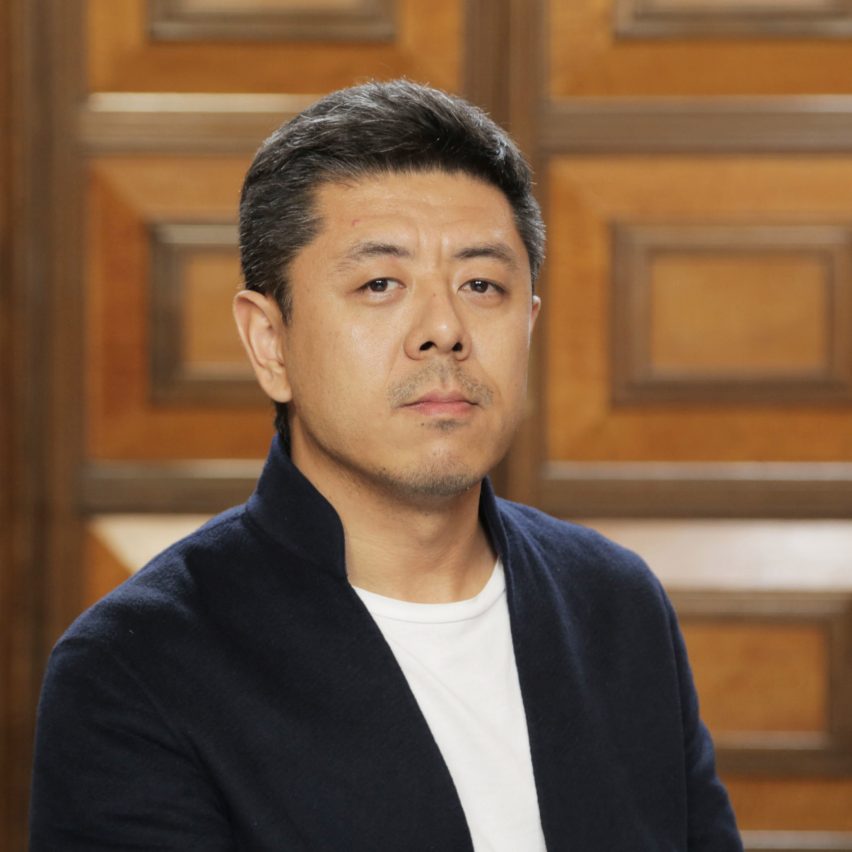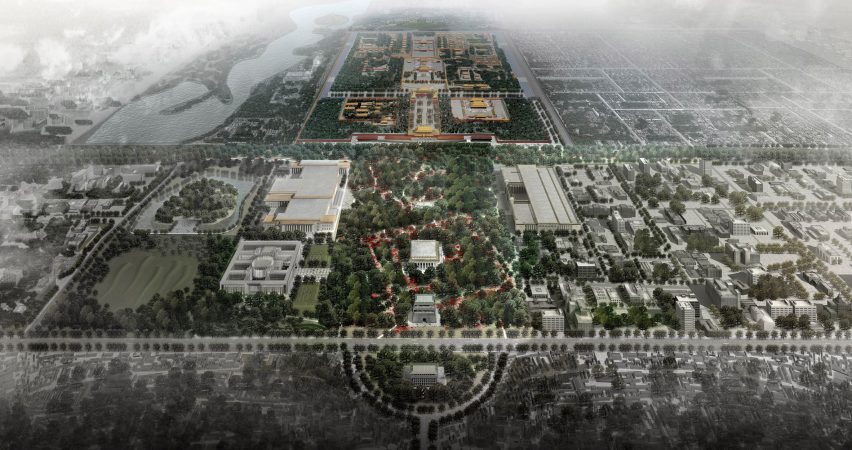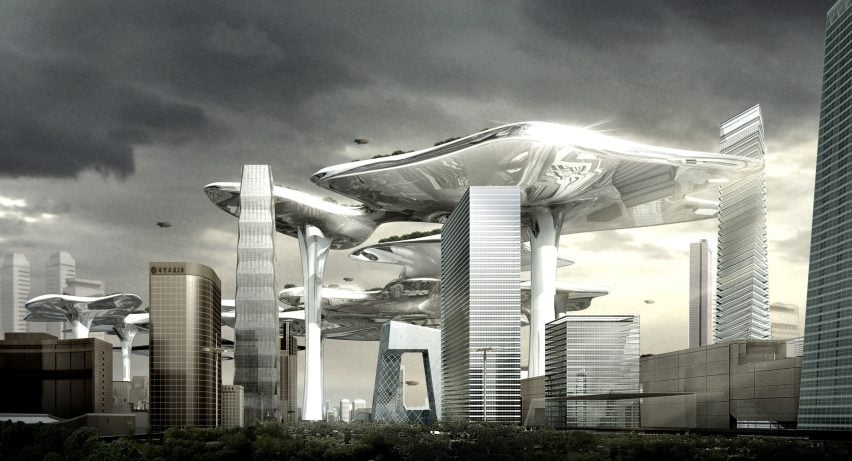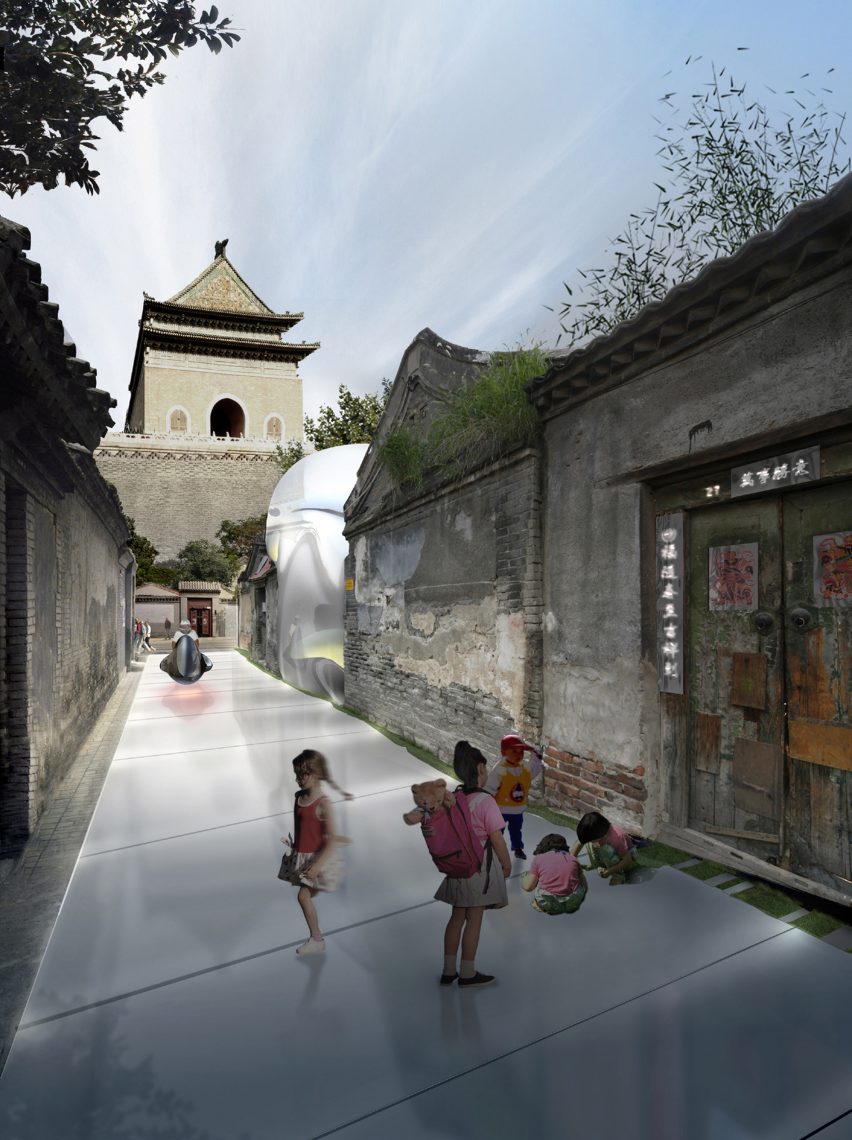Ma Yansong: "Architects need to talk about what the future is"
In this video interview filmed at the RIBA International Conference, Chinese architect Ma Yansong of MAD spells out why he believes architects should be proposing visionary ideas for the future, rather than cozying up to developers.
Ma previously spoke to Dezeen about why he thinks architects have a role to play in solving the big problems facing the world. In this movie, the MAD founder goes into more detail about the projects he thinks they should be producing.

"I think architects are too practical now, compared to the generations before when young architects as a group had a social agenda," Ma says in the movie, which Dezeen filmed for the Royal Institute of British Architects.
"When we talk about a city, we need to talk about what the future is. Whats the ideal scenario in the future?" he continues.
"Now it seems there is too much dialogue in between architects and developers, or capitalism and the authorities. Architects should be visionary."

Ma says that architects have a duty to put forward more ambitious plans for the future, rather than simply creating what they think developers want.
He points to his firm's Beijing 2050 project as an example. The project, which the Beijing-based studio revealed in 2006 for the Venice Architecture Biennale, consists of three conceptual architectural proposals for the Chinese capital in 2050.
These include creating a floating island above Beijing's Central Business District, adding metallic bubbles to improve living conditions in the city's traditional Hutong neighbourhoods and transforming Tiananmen Square into a public park full of plants and trees.

"We proposed Tiananmen Square – this very empty political square in the city centre – should turn green," Ma says.
"Maybe in the future, this space could become a very human and open urban space. And if that happens, I think that all the cities around China will follow to change."
While there are currently no plans to transform Tiananmen Square into a park, and Ma does not think it will happen any time soon, he believes it is important to put forward such proposals in order to open people's minds to what the future could be and to influence new generations of architects.
"Who knows, maybe in 2050, it will happen," he says. "When we look back, we will think maybe [the Beijing 2050] proposal has had some influence. Not to the project but to the people, to the younger generation that eventually will make this project real."

Ma – who ranked at number 61 on the inaugural Dezeen Hot List – founded MAD in 2004.
The firm has completed major projects in China, including the Fake Hills housing complex and the sinuous Harbin Opera House, and has even bigger projects on the horizon, including the George Lucas Musuem in Los Angeles and the China Philharmonic Hall in Beijing.
Ma spoke to Dezeen shortly after taking part in a panel discussion at the RIBA International Conference in London that explored the New Urban Agenda – the United Nations' global strategy for sustainable development and housing over the coming two decades.
Other speakers at the talk included Liz Diller, who told Dezeen that architects can help to prevent gentrification.